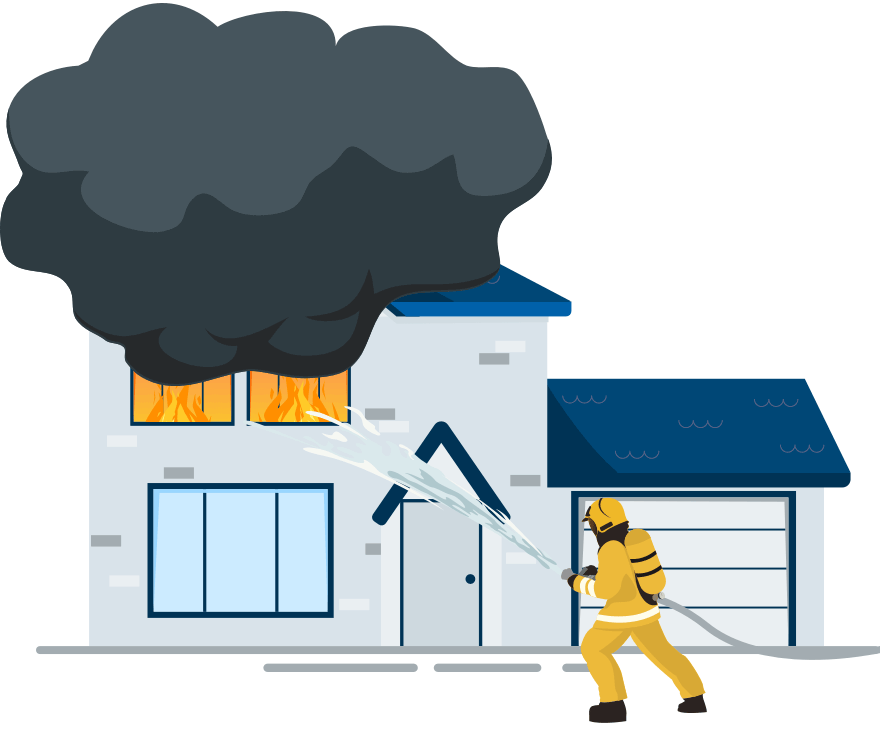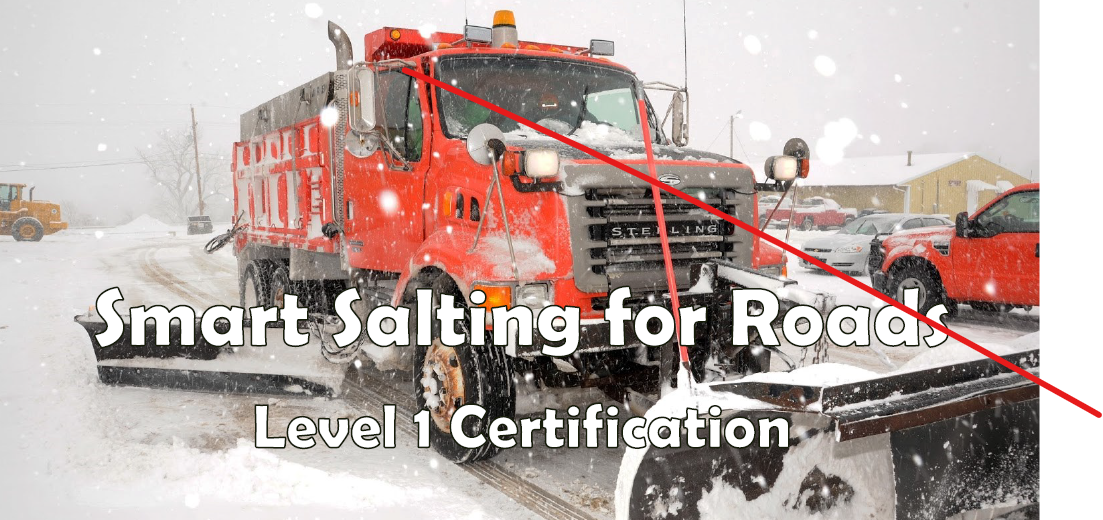Do any of the following describe you?
- State, city, and county road maintenance staff
- Contractors or private maintenance company
- Staff or volunteer who manages snow and ice at a facility
- Property manager
- Distributors of anti-icing/de-icing products
- An association who hires contractors
If so, this FREE upcoming smart salting training may be for you! Learn practical winter maintenance while saving money and time and minimizing impacts on the environment. Plus, there will be FREE coffee and breakfast!
The Smart Salting Level 1 Roads Certification Training on Wednesday, October 9th from 7:30 am to noon will help you learn how to integrate science with practical winter maintenance through presentations and class exercises. The practices you learn will help you save money, time, and the environment. You will be given a manual to keep as a reference.
What exactly will be covered in the class?
- Application rates of materials (e.g. salt)
- How to calibrate equipment
- Weather conditions
- Storing your materials
- New maintenance methods
- De-icing and anti-icing
- Environmental effects
- And more!
You can also GET CERTIFIED! An optional test is offered at the end of the workshop to earn a certification from the Minnesota Pollution Control Agency (MPCA).
Why is this training needed??
The salt applied to parking lots, sidewalks, and roads each year can have detrimental impacts to local waterways, plants, and wildlife. When snow and ice melts, salt runs into lakes and rivers, polluting water and harming aquatic life. The Minnesota Pollution Control Agency (MPCA) estimates that 365,000 tons of road salt are used annually in the Twin Cities, and a single teaspoon of this salt can permanently pollute five gallons of water. At the same time, salt application is an important part of keeping Minnesotans safe in the winter, and correct application of de-icers and anti-icers can make the difference between a treacherous path and a safe walkway.
The class will be held at the Blaine Public Works Facility (1801 101st Ave NE, Blaine, MN 55449). Please register here.
Questions? Contact Emily Johnson (emily.johnson@anokaswcd.org, 763-434-2030 x17)
Funding for this workshop is provided by MPCA through a grant from US EPA, Section 319 Nonpoint Source Management Fund. The course and materials were originally developed for the Mississippi Watershed Management Organization by Fortin Consulting, Inc. Content was created and reviewed through extensive collaboration with local experts.




 October 16th, 2019
October 16th, 2019  knowtheflow
knowtheflow 








